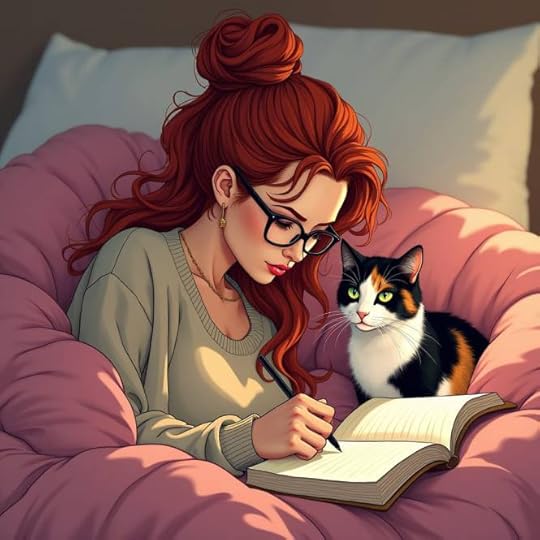How Improv Techniques Enhance Fiction Writing
Bloggity blog time. Insomnia has been kicking my backside this week, though I had decent sleep by this afternoon, so I am going to blabber at you and fair warning, this will not be perfect.
[image error]Pexels.com" data-medium-file="https://annacbowling.com/wp-content/u..." data-large-file="https://annacbowling.com/wp-content/u..." src="https://annacbowling.com/wp-content/u..." alt="" class="wp-image-20375" style="aspect-ratio:0.666931321953156;width:466px;height:auto" />Photo by Claire Morgan on Pexels.comStock image, okay, that’s good. Anyway, hi. No plan for this entry, which fits, because that does jibe with my original plan, so maybe that works. Let’s go with that. A month or so ago, I had mentioned in an online group I’m in, where the topic was how we express ourselves. I mentioned that I am a novelist and blogger, and that if an acting opportunity were to drop in my lap, I would jump on it.
Well. As so often happened, I not long after that found a notice in our local subreddit, offering a free four week improv class for adults, very close to where I live. I did indeed jump on that. I hadn’t had formal improv training in decades, but the second I entered the room, it was like no time had passed. Here are the top three lessons from improv (which I love and one thousand percent intend to pursue more in the future) that I am applying to my fiction writing.
Yes, and…; this is the first rule of improv. Take what your partner offers and add to it. You had it in mind that your character would be an astronaut, and your partner offers that you are driving a tractor in a cornfield. Instead of refusing that, “yes, and” might look like finding a way to combine the two. Yes, they are driving a tractor in a cornfield, and they are also astronauts. What are the odds that they got assigned to the first corn farm on Mars?Blurt: this goes directly against my innate urge to overthink, but it works. What the instructor suggested was that if we go for the funniest thing, we’re going to overpopulate our brain and then we can’t make any decisions, and the scene dies. Blurt out the first thing that comes to mind and trust that your partner will add to that. This definitely works when writing in collaboration, and it does work with solo writing as well. As Nora Roberts once said, “I can fix a bad page. I can’t fix a blank one.” I need to remember that. In the case of solo writing, for me, my characters can count as my partner in such cases. The Next Obvious Thing: This one met with the most resistance from me, but I am warming to it. Reference the overthinking from above. The overpopulated brain bit does resonate. Case in point, let’s say we’re doing a scene. My partner starts with “Hi, Dr. Jones. Thanks for responding to my request for a consult. My patient is over here.” What’s the next obvious thing? Dr. Jones would want to see the patient, so, as Dr. Jones, I would go to where my partner indicated the patient is. If my partner doesn’t offer anything, like name a symptom or ask me to look at xyz, the next obvious thing might be to ask questions. With no offer given, I have no restrictions, so I can have some fun. Why is the patient upside down? So, they are complaining of ABC? This patient again? This is the third time this week. Anything. Refer to blurt, above. When there are too many options, what is the next most obvious one?These are not the only lessons that improv has taught me, which I can bring over to fiction and blogging, but they are the — you guessed it– first most obvious ones. There are others, which I may go into later: celebrate failure, make your partner look good, be observant. Most importantly of all, there is this: when you take the stage, you have everything you need to complete the scene. I may need to make a sign for that one. What do you think?
 as always, Anna
as always, Anna



